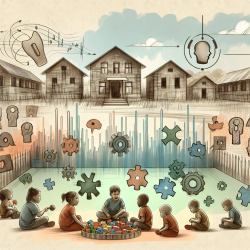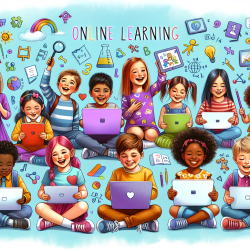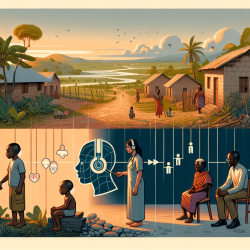Empowering Change: Understanding Historical Trauma to Improve Child Outcomes
In the realm of speech-language pathology, understanding the broader context of a child's background is crucial for effective intervention. The research article, "The intergenerational effects of Indian Residential Schools: Implications for the concept of historical trauma," provides profound insights into how historical trauma affects current generations, particularly within Aboriginal communities in Canada. This understanding is pivotal for practitioners aiming to create meaningful and lasting change in children's lives.
Understanding Historical Trauma
Historical trauma refers to the cumulative emotional and psychological wounding over generations, emanating from massive group trauma experiences. The Indian Residential School (IRS) system in Canada serves as a stark example, where Aboriginal children were forcibly removed from their families and subjected to systemic abuse and neglect. The research by Bombay, Matheson, and Anisman (2014) highlights how these experiences have enduring effects, not only on the survivors but also on their descendants.
Key Findings and Implications
The research outlines several key findings that can guide practitioners:
- Intergenerational Transmission: The trauma experienced by IRS survivors has been passed down to subsequent generations, affecting their psychological and social well-being. This underscores the importance of understanding a child's familial history in therapeutic settings.
- Stress Proliferation: The initial trauma leads to additional stressors across generations, impacting educational outcomes and mental health. Practitioners should consider these factors when designing interventions.
- Identity and Cultural Factors: Despite attempts to erase Aboriginal identity, many descendants maintain a strong cultural identity, which can be both a source of resilience and a trigger for perceived discrimination. Recognizing and supporting cultural identity can enhance therapeutic outcomes.
Practical Applications for Practitioners
For practitioners in speech-language pathology, integrating the understanding of historical trauma into practice can enhance the effectiveness of interventions. Here are some strategies:
- Holistic Assessment: Incorporate questions about family history and cultural background into assessments to better understand the child's context.
- Cultural Sensitivity: Develop culturally sensitive intervention plans that acknowledge and respect the child's heritage and identity.
- Collaborative Approaches: Work with community leaders and cultural experts to create supportive environments that reinforce positive identity and resilience.
- Continuous Education: Stay informed about historical trauma and its effects to continually adapt and improve practice strategies.
Encouraging Further Research
While the research provides a solid foundation, there is a need for continued exploration into the specific mechanisms by which historical trauma affects current generations. Practitioners are encouraged to engage with ongoing research and contribute to the growing body of knowledge. By doing so, they can help shape interventions that are not only effective but also culturally appropriate and empowering.
To read the original research paper, please follow this link: The intergenerational effects of Indian Residential Schools: Implications for the concept of historical trauma.










